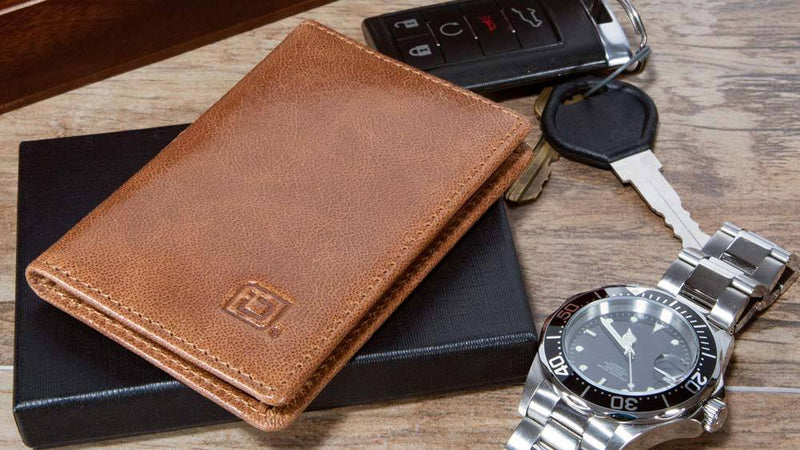With the increasing prevalence of contactless payment technology, RFID (Radio Frequency Identification) wallets have become a popular solution for protecting personal information. These wallets utilise advanced technology to shield your credit cards, passports, and IDs from unauthorised scanning. In this comprehensive guide, we will delve into the inner workings of RFID wallets, explaining the technology behind them and how they effectively safeguard your data. Read on to gain a clear understanding of how RFID wallets work and why they are crucial in today’s digital age.
The Basics of RFID
To comprehend how RFID wallets operate, it’s essential to grasp the fundamentals of RFID technology. RFID uses radio waves to transmit data wirelessly between an RFID reader and an RFID tag. The UHF RFID tag contains a small chip that stores information, while the reader is responsible for capturing and interpreting that data. In the case of contactless payment cards and passports, these tags are embedded with RFID chips that can be accessed by authorised readers. However, this convenience also presents a security risk that RFID wallets aim to address.
RFID Wallets and Blocking Technology
RFID wallets incorporate specialised blocking technology to prevent unauthorised access to the RFID chips in your cards, passports, and IDs. The wallets feature a lining composed of RFID-blocking materials, such as metal or carbon fibre, which disrupt the radio waves emitted by RFID scanners. When your cards or documents are stored within the RFID wallet, this lining acts as a shield, effectively blocking the signals from reaching the RFID Impinj chips. As a result, potential electronic pickpockets or identity thieves are unable to scan and capture your sensitive information.
Understanding RFID Shielding
RFID shielding is the key mechanism that makes RFID wallets an effective defence against unauthorised scanning. The RFID-blocking lining creates a Faraday cage around your cards and documents, which is a shielded enclosure that prevents external electromagnetic fields from penetrating it. This means that when your RFID-enabled items are enclosed in an RFID wallet, the radio waves emitted by RFID scanners are unable to reach the RFID chips, rendering them invisible and unreadable. The shielded enclosure effectively isolates your personal information, providing a secure barrier against potential threats.
The Importance of Material Selection
The materials used in RFID wallets play a crucial role in their effectiveness. While there are various options available, wallets made with metal, such as aluminium or stainless steel, offer superior RFID protection due to their natural conductivity properties. Metal materials act as efficient blockers of radio waves, preventing unauthorised scanning attempts. Carbon fibre is another popular choice as it possesses similar blocking capabilities. When selecting an RFID wallet, opt for one made from these materials to ensure optimal protection for your personal information.
Additional Security Measures
In addition to RFID-blocking technology, some advanced RFID wallets offer extra security features. These may include biometric authentication, such as fingerprint or facial recognition, to ensure that only authorised individuals can access the wallet’s contents. Some wallets may also incorporate additional layers of encryption to further safeguard your data. These supplementary security measures provide an extra level of confidence, particularly for individuals who deal with highly sensitive information or frequently travel.
Conclusion
As RFID technology becomes more prevalent in our daily lives, it’s crucial to understand how RFID wallets work and why they are essential for protecting personal information. By utilising RFID-blocking materials and shielding technology, these wallets create a barrier that safeguards your credit cards, passports, and IDs from unauthorised scanning. When choosing an RFID wallet, consider the materials used and any additional security features offered. With an RFID device wallet in your possession, you can confidently navigate the digital landscape, knowing that your personal information is shielded from electronic pickpocketing and identity theft. Stay one step ahead of potential threats by embracing the security and peace of mind that RFID wallets provide. Protect your data, protect your identity, and take control of your digital security with an RFID wallet.












